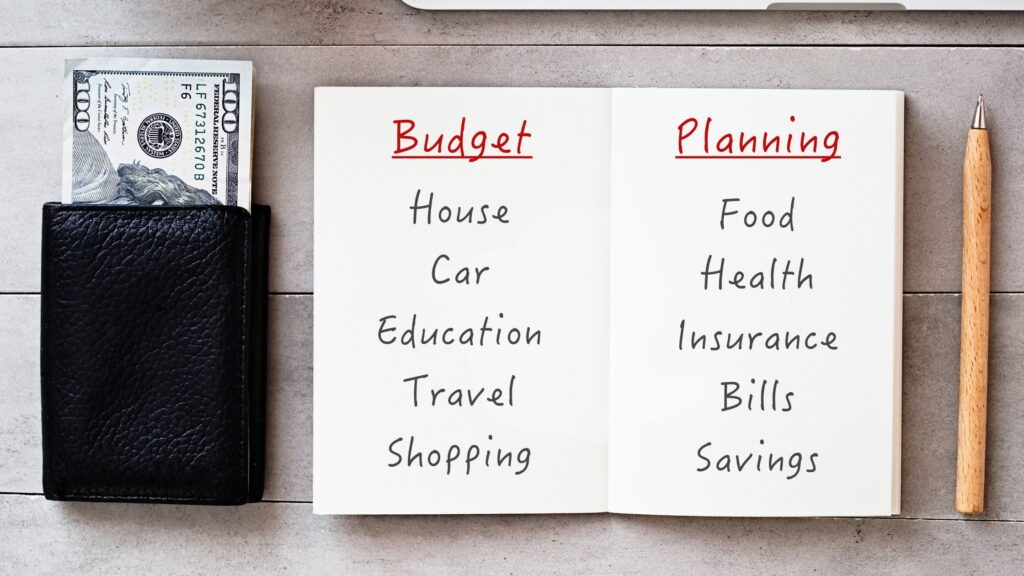Saving money is one of the most difficult things to do for most people.
The truth is, there’s a different mindset needed to start savings.
Today, we will be discussing the truth behind saving money and how we can successfully make it a habit.

How can I really save money?
Saving money helps people feel safer and more secure. It gives people a sense of calm, especially during times of crisis or emergency.
Have you noticed that when there is a significant amount of money in your savings account, you have more freedom to do as you please?
You can call your own shots and make life choices that do not depend on your paycheck.
For example, a healthy savings account can allow you to take a vacation or buy the things you want without thinking about the price tag.
It could also allow you to fulfill your dreams, like building a business or donating to your favorite charity.

Saving money has a lot of perks. So why do most people still find it hard to save?
According to a survey done by GoBankingRates, about 50% of women and 30% of men claimed that they have $0 in their savings account.
Because of this, the lack of money became the number one source of stress for Americans. In one survey conducted by the American Psychological Association, 72% of respondents said that money is a source of stress in their household.
Money issues are also the reason why 37% of marriages in the US fail.
If you think that having a higher income guarantee having a sizable savings account, this research proves that isn’t the case.
Here are some reasons why it gets difficult to save money.
When income goes up, the lifestyle goes up
Most people wait for a salary bump so that they can finally buy their dream house, dream car, or go on their dream vacation.
Being able to buy the things they previously can’t afford gives them a boost in self-esteem and confidence. They go on spending that money because they believe it will make them happier.
Expenses go higher but salaries are not keeping up

An average household in the US spends $5,000 in healthcare annually. When considering the cost of childcare, housing, and other expenses, savings fall at the bottom of the list.
With a fixed monthly income, this person becomes incapable of putting money aside.
For low-income households, savings can become a luxury they cannot afford.
Saving becomes an afterthought
Because of the increasing expenses, most people save less than 5% of their disposable income.
Most of the time, this happens only if there is money left over from paying all their responsibilities.
Some just focus on what they have now, thinking that there’s only one life to live.
While it’s good to savor the moments, some people take this too literally. They think money should be spent without thinking of the consequence.
This behavior also encourages ‘one-day millionaire’ thinking. So in the end, all their hard-earned cash goes to people, things, and experiences that don’t add up to their value.
Cultural differences

A person’s cultural upbringing also has a huge impact on their behavior towards money.
Most Asian cultures have a strong inclination to fulfilling filial duties. This may include helping raise family members, usually brothers and sisters even as they grow older.
Or covering for hospital expenses of an aunt or uncle.
Differences in religious beliefs also impact how you spend.
All of these factors contribute to our relationship with money and can be carried on to the next generations.
So when a parent doesn’t have the right money mindset, their children tend to show the same behavior when they become adults. Children of spenders become spenders themselves. Children of borrowers become borrowers too.
“I must be a fool for not being able to save. I mean, I’ve been working for the past x amount of years, and yet I have nothing to show for it.”
If this is you, I want you to stop being so hard in yourself.
Do not beat yourself up because your life can change.
Remember the universal law of creating money? You always have control over how much you want to make.
Read more about it here: https://gullkhan.com/2020/07/31/creating-money/
In the next section, I will show you how to focus on yourself so that you can build back your self-esteem and be on your way to achieving your money goals.
How to Save Money
There are a lot of ways to kickstart your saving journey. If you’re unsure where to start, here are a few ideas that can help.
Track your expenses
Some people are too afraid to look at their bank accounts.
Because of this fear, they become unaware of how much they’re spending and so they’re left wondering where all the money went.
Tracking where your money goes becomes much easier if you write it down. You can easily do this by using a spreadsheet or a notebook.
Write down all the things you’ve spent money on, whether that’s groceries or even a simple cup of coffee.
Doing this will help you find opportunities to improve your finances.
In this article, Dave Ramsey talks about how you can start saving money. Tips that are simple and can be achieved by changing your routine and looking for ways to cut back on your spending.
Make a budget and stick to it

After you have listed your expenses, you now have a clear idea of where your money goes each month.
It’s now time to make a budget.
Take note of your usual purchases and see which parts you can cut down from.
Check alternatives when it comes to buying. Focus on the value and not the brand.
Creating a budget helps you be more mindful of how you spend. It also helps you become less impulsive when making purchases.
Make savings a priority
Instead of putting savings on the backseat, put it on the top of your priority list.
Before you spend your money on expenses, make it a point to keep a portion of it in your savings account.
This can be done by automating your savings account.
Most financial gurus would tell you that to be able to grow your savings account, you must first create an emergency fund.
As a money mindset expert, I strongly advise against that.
Emergencies should not be the reason to start saving money.
Instead of that, here’s what I suggest you do.
Work on clearing your money blocks
Here’s the truth: How you feel about money is manifested in your finances.
Just like what we have talked about regarding cultural differences, being immersed in an environment that has a negative perception of money will greatly impact your ability to earn and keep the money.
The law of attraction states you attract what you think. The thoughts you focus on turn into your reality.

When you are saving money for an emergency, the emergency would have to appear and take that money away from you.
The good news is you can rewire your brain to focus on the positive through gratitude.
If your thoughts focus on your desires, you will have the drive to achieve those goals.
For you to change your money story, you must be willing to change the way you think and feel about money.
Read more about how to create money avatars here: https://gullkhan.com/2020/07/25/money-avatar/
Tips on How to Save Money
I have talked about how you can master your cash flow and create better financial flow here: https://gullkhan.com/2019/12/18/cash-flow-101/
And one of the best and fastest way for you to create savings is by setting up five accounts for your money.
The goal is to create five accounts where you can put in at least 1% of your actual earnings.
So why am I recommending this? One, it’s pretty manageable even if you don’t have much. Second, I’ve used it myself up to date so I know that it works.
This process will teach you the discipline you need to start the habit of savings. It’s also a powerful process that can help you clear your debts.
So here it goes…

Account #1: [Your Name] Account
This account is dedicated to yourself. It helps you feel at ease knowing that you’re putting money in for you alone. In the future, you can use this account to build investments that would help you during your retirement years.
Account #2: Account for Fun
Use this account to take care of yourself. Spend it on things that will help you achieve a more positive outlook in life. While it’s tempting to spend less on yourself when money is tight, you must resist the urge. Avoid using this account to pay for bills and other expenses.
Account #3: Account for Large Purchases
This account is for large purchases, those items that would normally take up to six months to save up for. Use this account when you’re planning to purchase a car, a phone, or a house.
Account #4: Account for Charity
This account is for helping those who are in need. Having money in this account enables you to help other people without dipping into your other accounts.
Account #5: Account for Debt Payments/ Investments
If you have debt, use this account to pay your debts first. It is not advisable to invest money when there is still debt. Once you’ve cleared your debts, use this money to build your investment portfolio.
If you’re currently living paycheck to paycheck and you think that this task would be impossible for you to achieve, try these saving money tips.
If you only have $100 to spend, commit the $5 for these accounts. All you need to do is put $1 for each account monthly.
As you progress, you can increase the amount you put into these accounts.
When you’ve built the habit and gained momentum, you can increase it to 3-10% of your income. If you’re earning $2,000, commit 3% of your monthly income.
In this case, it would be $60. If you divide $60 into 5, you only need to put $12 on each account.
Once you feel more comfortable, start increasing the amount you put in and you’ll see your savings grow in no time.
Conclusion
Building up your savings takes time and effort.
But with the right mindset, tools, and support system, you can easily adapt to the habit of saving money.
Listen to the full podcast here.
Ready to change your money story?
Register to my Five Day Millionaire Mindset Makeover Challenge here: https://www.millionairemindsetmakeover.com/
